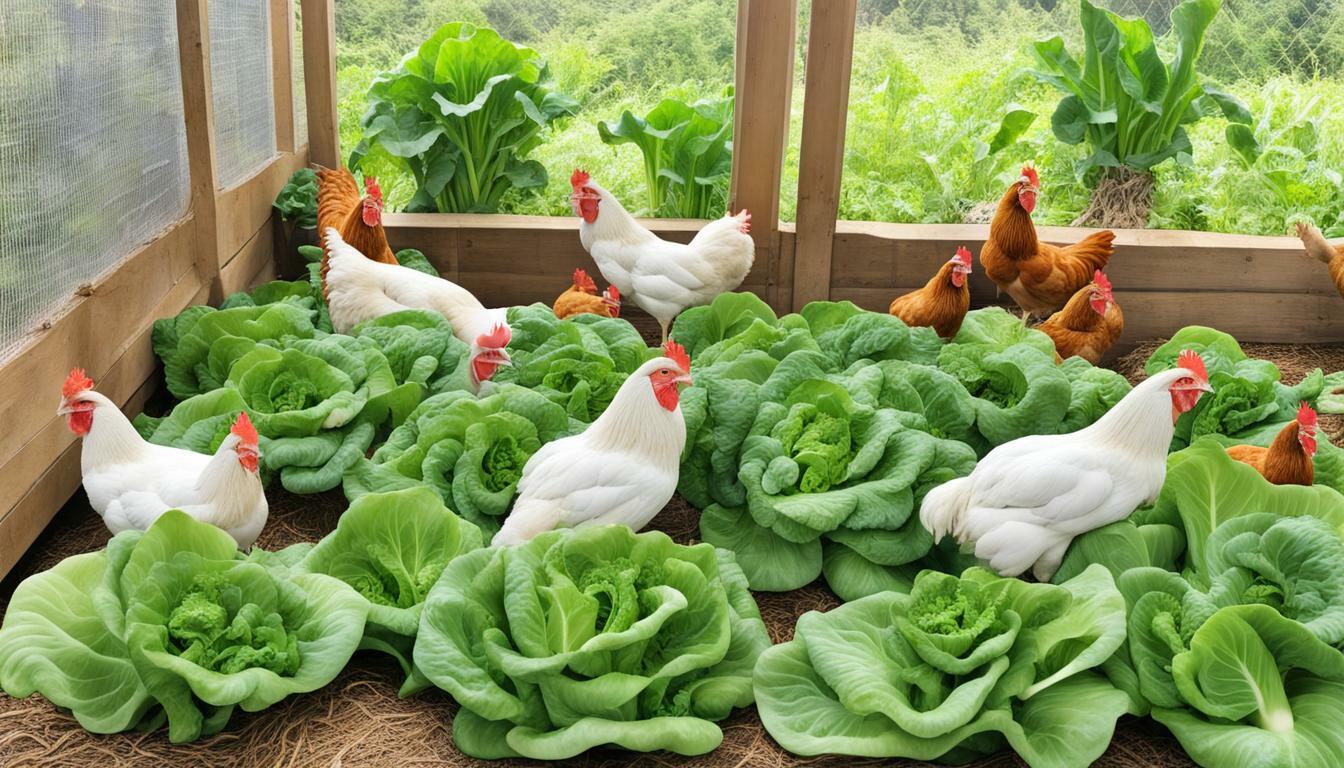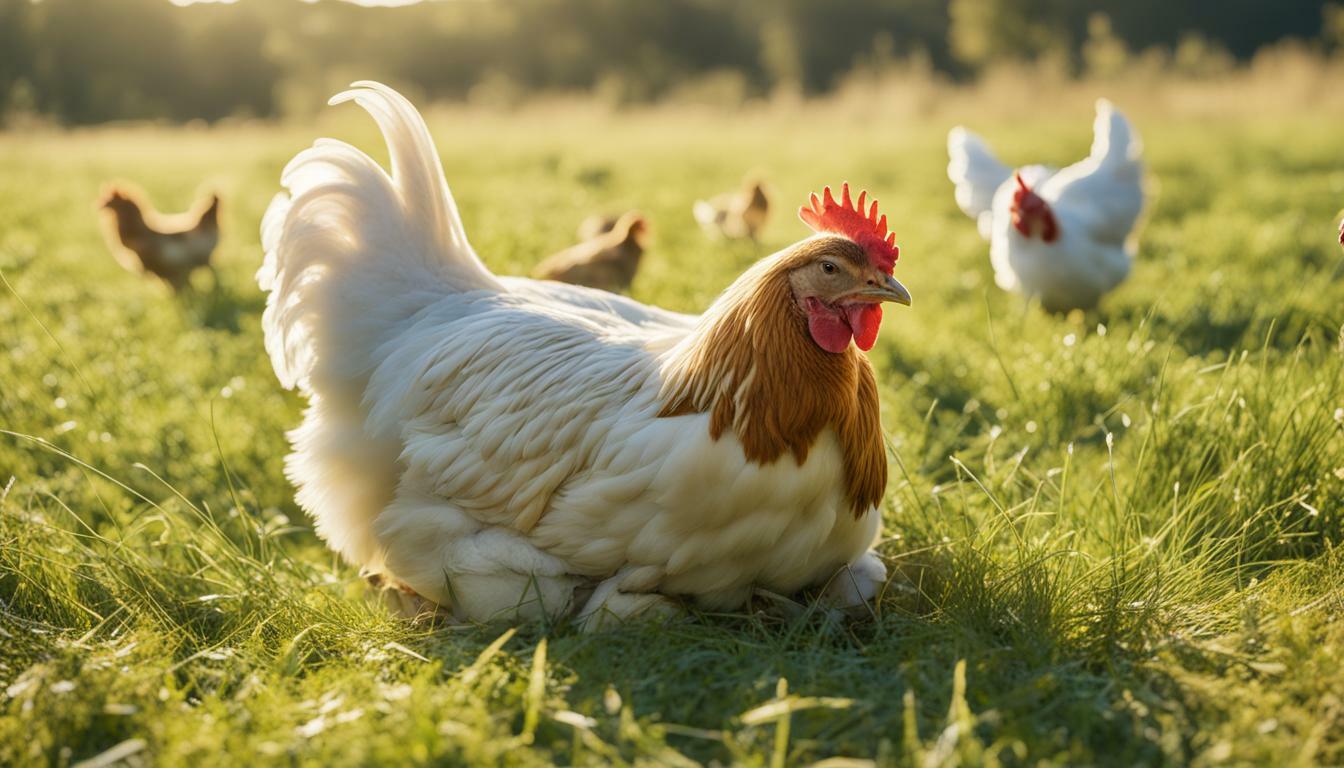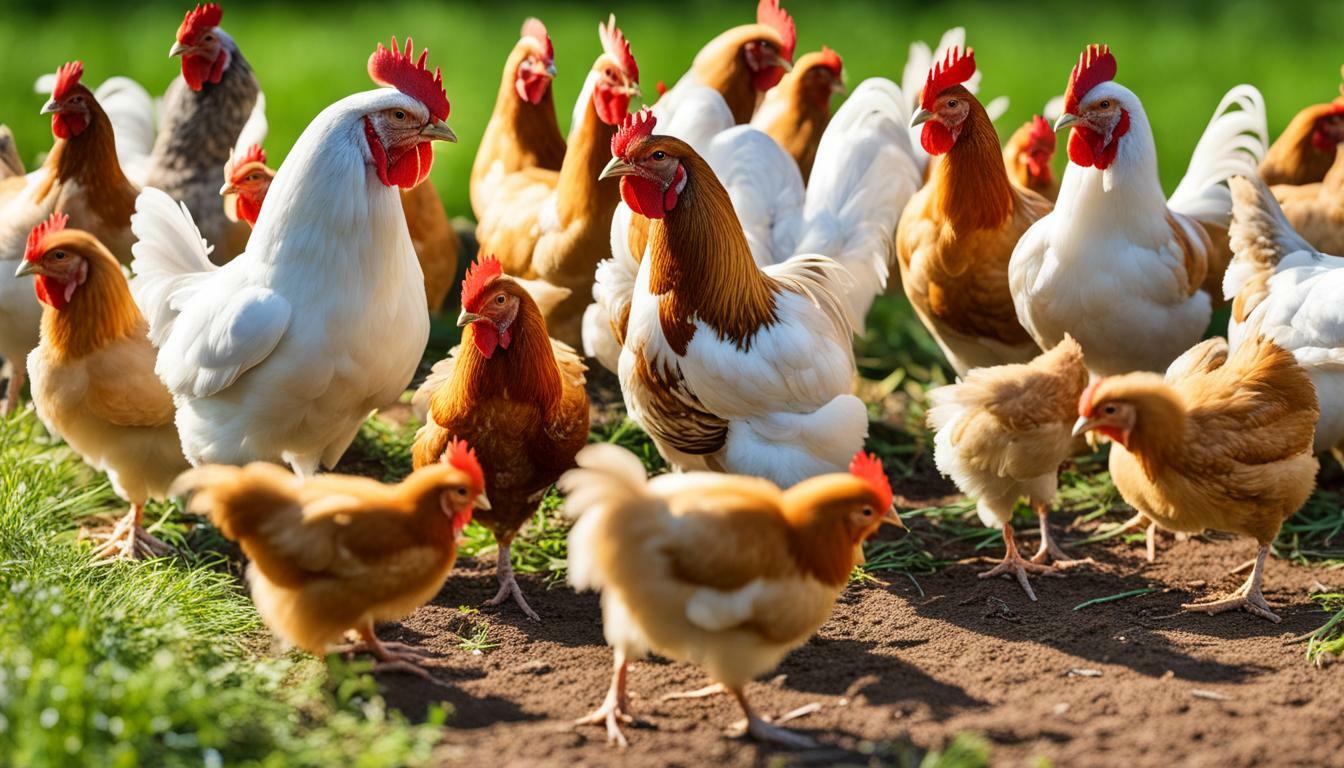Can Chickens Eat Bok Choy? A Nutritious Treat for Your Flock

Table of content:
Bok choy, also known as Chinese cabbage, is a popular leafy green vegetable that is commonly found in stir fry dishes and soups. But can chickens eat bok choy as part of their diet? The short answer is yes, chickens can absolutely eat bok choy as part of a balanced diet.
What is Bok Choy?
Bok choy, scientifically known as Brassica rapa chinensis, is a type of Chinese cabbage that belongs to the Brassica family. It goes by many names including pak choi, pok choi, and Chinese white cabbage.
Bok choy has thick white stalks and dark green leaves. It has a mild, sweet flavor that is similar to cabbage but less bitter. Both the stalks and leaves of bok choy are edible.
There are several cultivars of bok choy including:
- Baby bok choy – tender and petite variety.
- Shanghai bok choy – has wide stalks.
- Nappa cabbage – oval shaped heads.
- Chinese broccoli (gai lan) – thick stems and leaves.
No matter the variety, all types of bok choy offer great nutritional value. The vegetable is packed with vitamins A, C, and K. It also contains calcium, potassium, iron, and folate.
Benefits of Feeding Bok Choy to Chickens
Bok choy offers a number of benefits that make it a great addition to a backyard chicken’s diet. Here are some of the main advantages:
Excellent Source of Nutrition
Bok choy contains lots of key vitamins, minerals, and nutrients that chickens need to stay healthy. The high antioxidant content helps boost the immune system.
The vegetable has high amounts of vitamin A for eye and skin health. Vitamin C supports respiratory health. Vitamin K is essential for blood clotting.
Bok choy also provides potassium for muscle function, iron for oxygen transport, and folate for cell growth. The calcium helps develop strong bones and eggshells.
Aids Digestion
The fiber content in bok choy promotes healthy digestion in chickens. The insoluble fiber adds bulk to the stool and improves intestinal motility.
Bok choy acts as a natural laxative to help prevent intestinal blockages. The high water content also keeps chickens well hydrated.
Lean Source of Protein
While not as protein-packed as meat, bok choy does contain some plant-based protein. Feeding chickens bok choy gives them an alternative lean protein source.
The amino acids in the vegetable help chickens maintain muscle mass for healthy growth and development.
Palatable Leafy Green
Many chickens love leafy greens like bok choy. Introducing more greens into their diet adds variety and increases palatability.
The mild flavor and crunchy texture of bok choy make it appetizing for chickens. They enjoy pecking at the leaves and stalks.
Supports Egg Production
The nutrients in bok choy, like vitamins A, D, E, K, and B-complex vitamins, support a chicken’s reproductive health. This can lead to increased egg production.
The minerals in bok choy also help form quality eggshells. So feeding bok choy helps lay more eggs with strong shells.
Easy to Grow
Bok choy is relatively easy to grow in home gardens. Chicken owners can plant and harvest bok choy specifically to use as chicken feed. Just a small garden plot can produce enough for chickens.
Growing bok choy is cheaper than buying chicken feed. And chickens will appreciate the fresh greens.
Can Chickens Eat All Parts of Bok Choy?
Yes, chickens can eat all parts of bok choy – the leafy green tops as well as the thick crisp stalks.
The stalks of bok choy contain fiber and nutrients. Chickens will enjoy pecking at the juicy crunchy stalks.
Make sure to chop the stalks into smaller pieces to prevent choking. Pieces should be no larger than 1/4 inch cubes.
The leafy greens are also perfectly safe for chickens to consume. The leaves provide protein and essential vitamins.
Remove any discolored or slimy leaves before feeding. Only offer fresh, crisp green leaves to ensure safety.
Both the stems and leaves can be mixed into their feed or offered free choice in the run. Just supervise closely the first time to see if your chickens are like bok choy.
How Much Bok Choy Can You Feed Chickens?
When introducing a new food, start slowly with small amounts. Bok choy should be fed in moderation as part of a balanced diet. Here are some feeding guidelines:
- For adult chickens – Feed 1-2 ounces of bok choy per chicken daily.
- For chicks – Feed just a few small shredded leaves until 6 months old.
- No more than 15% of daily feed intake.
Monitor if your chickens readily eat the bok choy. Increase the amounts if they finish it all quickly. Scale back if it is ignored.
Feed bok choy in the morning so it doesn’t spoil in warm weather. Remove any leftovers within a few hours.
Avoid drastic diet changes. Introduce new foods gradually over 2-3 weeks. This gives their digestive system time to adjust.
Always provide free access to layer feed and fresh water. Bok choy should supplement their regular diet, not replace it entirely.
Feeding Bok Choy to Chickens
Here are some tips for safely feeding bok choy to backyard chickens:
Wash Thoroughly
Rinse bok choy under cool running water. This removes any dirt or debris that could be clinging to the leaves and stalks.
Pat dry with a paper towel or spin in a salad spinner. Only feed chickens clean, dry bok choy.
Remove Wilted Leaves
Inspect the bok choy and discard any slimy, discolored, or wilted leaves. Only feed your chickens fresh, crisp greens to prevent illness.
Chop Into Bite-Sized Pieces
Chop or shred the bok choy into small, uniform pieces before feeding it to chickens. Cut stalks no larger than 1/4 inch cubes.
This makes it easier for the chickens to eat. It also allows more birds to share the vegetable.
Introduce Slowly
When offering a new food, start with small amounts. Gradually increase the bok choy over 2-3 weeks as their digestive system adjusts.
Avoid sudden changes in diet to reduce the risk of diarrhea or digestive upset.
Provide Free Choice
Add some chopped bok choy into their feed or offer free choice in a separate dish. Allow chickens to nibble as wanted.
Remove any uneaten bok choy within a few hours to prevent spoilage in warm weather.
Grow Your Own
Consider planting bok choy in your garden for fresh greens to feed your flock. Just a few plants can provide daily leaves and stalks for chickens.
Pick leaves as needed so they stay tender. Bok choy is relatively easy to grow.
Are There Any Risks to Feeding Bok Choy?
Bok choy is safe for chickens to eat when introduced properly. There are a few risks to consider:
- Choking hazard – Chickens may choke on large, stringy pieces of bok choy. Always chop into bite-sized pieces first.
- Dirty greens – Rinse thoroughly and remove any decaying or wilted leaves that could cause illness.
- Diarrhea – Too much bok choy too fast can lead to loose droppings. Transition slowly over 2-3 weeks.
- Nutritional imbalance – Bok choy should not exceed 15% of daily feed. Offer just 1-2 ounces per chicken daily.
- Spoiled veggies – Remove uneaten bok choy within a few hours in warm weather. Don’t leave sitting out overnight.
- Pesticides – Wash store-bought bok choy well to remove any pesticide residue. Better yet, grow your own organically.
As long as you introduce bok choy slowly and follow proper feeding guidelines, chickens can enjoy it safely as part of their diet. Always supervise them closely at first.
What Other Leafy Greens Can Chickens Eat?
In addition to bok choy, chickens can eat a variety of other healthy leafy green vegetables such as:
Kale
An excellent source of vitamins A, C, K. Promotes healthy digestion and egg yolk color. Chop curly kale leaves before feeding.
Swiss Chard
Packed with vitamins K, A, C. Contains calcium and iron. Both leaves and stalks are safe to feed.
Romaine Lettuce
Crisp leaves provide hydration. Contains vitamin A and potassium. A favorite treat of many chickens.
Spinach
Filled with carotenoids for vitamin A. Also contains folate, iron, vitamin C, and calcium. Feed in moderation.
Arugula
Peppery greens add flavor. High in vitamins A, C, and K. Contains calcium, potassium, and folate.
Collard Greens
Large leaves provide fiber. Have antioxidant vitamins A, C, and K. Great source of calcium. Help strengthen bones.
Cabbage
Crunchy texture. Packed with vitamin C and K. Supports immune and blood health. Can cause gas so feed sparingly.
Broccoli
Chop the heads into florets. Good source of vitamins C, E, K, A, and B6. Low in fat. Antioxidants support immunity.
Always introduce new leafy greens slowly. Chop into bite-size pieces and offer just a handful per chicken daily to start. This allows their gut flora to adjust. Make sure to feed a variety for a well-rounded nutritional diet.
Is Bok Choy Better Than Chicken Feed?
Chicken feed is formulated to provide complete and balanced daily nutrition. While bok choy is very healthy, it should not replace chicken feed entirely.
Here are some benefits that commercial feed offers:
- Complete nutrition – Has all essential vitamins, minerals, protein, etc. Bok choy only provides some nutrients.
- Proper ratios – Feed is perfectly balanced, not too much of one nutrient. Bok choy is high in just a few vitamins.
- Convenient – Ready to pour or serve. Don’t need to chop veggies or clean greens.
- No waste – Chickens eat it all. Bok choy can spoil if they don’t eat it fast enough.
- Fortified – Contains added supplements not found naturally in greens.
- Affordable – Economical compared to purchasing produce.
Chicken feed provides a nutritionally complete base diet. Bok choy makes an excellent supplemental addition to provide more variety.
Aim for 70-80% of their diet from quality layer feed. The rest can come from leafy greens, vegetable scraps, treats, and foraging. This gives a balanced diet without deficiencies.
Free choice oyster shell calcium supplements should always be available too, especially for laying hens.
Final Thoughts
In conclusion, bok choy is perfectly safe and nutritious for backyard chickens to eat. Introduce it slowly to their diet for the best results.
Chop bok choy into small pieces and feed just 1-2 ounces per adult chicken daily. Remove any leftovers within a few hours.
While not a complete diet replacement, leafy greens like bok choy make an excellent supplement to commercial feed. The added vitamins, minerals, and antioxidants benefit chicken health.
So consider growing bok choy in your garden or picking some up next time you shop for produce. Just be sure to rinse it well and start with small amounts. Your flock will likely appreciate this tasty, crunchy treat!
Welcome. I’m Adreena Shanum, the proud owner of this website, and I am incredibly passionate about animals, especially poultry. I founded adreenapets.com as a labor of love, stemming from my desire to share my knowledge and experiences with poultry enthusiasts worldwide.




